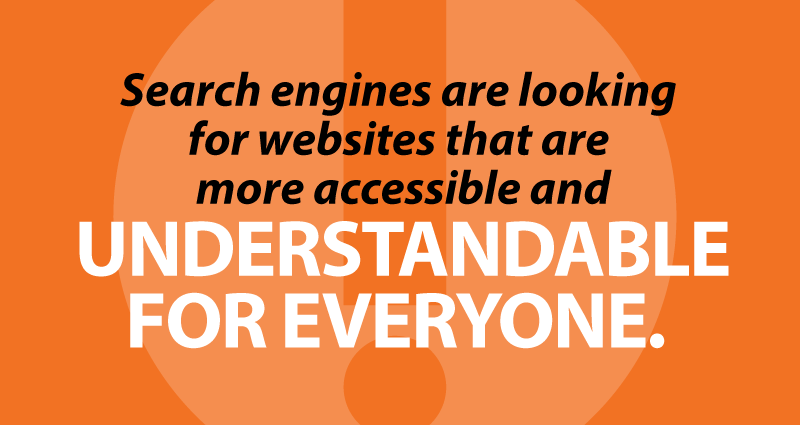
Is your website written for brainiacs?
Did you realize that a high reading level on your website might be hurting your search results and making your site less useful?
If Google’s algorithm thinks you’re writing for brainiacs instead of the average person, it could be showing up in your search results.
Which makes sense, since search engines are looking for websites that are more understandable and useful for everyone. Reading level is also part of making your credit union website more Accessible.
And while you may think the writing on your website is pretty basic, several of our CU clients have found that their site is written at too high of a reading level.
But how do I know what the reading level is on my website?
If you’re a DIY-er, here is the most common process used to determine the reading level of your content. It’s called the “Flesch Grade Level Formula”
- Calculate the average number of words used per sentence
- Calculate the average number of syllables per word
- Multiply the average number of words by 0.39 and add it to the average number of syllables per word multiplied by 11.8
- Subtract 15.59 from the result
Or, for you math geniuses, here’s the formula.
But most of us use free web based tools
Both the following sites contain fairly good automated text checkers that allow you to copy and paste in text to get different kinds of readability scores, including the Flesch score:
https://www.webfx.com/tools/read-able/check.php
http://www.readabilityformulas.com/free-readability-formula-tests.php
If you use WordPress for your website, you can also get a quick reading with the Yoast SEO plugin.
Keep in mind that automated checkers like these are limited. There are times where the page contains phrases and words that can’t be revised without changing the meaning or tone. Three and four syllable words increase reading level scores, but sometimes there are no good substitutes.
Wait a minute, you really want me to copy and paste every word on my website?
If you want to test your whole site that’s up to you, but we recommend looking at your page view stats first. On most credit union websites, we’ve found that the top ten pages cover about 99.9% of total page views, so we suggest you focus on those.
What reading level should I be targeting?
Every website is different, so it depends on your audience. If your CU’s membership really is made up of mostly rocket scientists, you might be able to boost your syllable count.
Then again, even rocket scientists prefer clear, easy to understand text. No one has ever complained that something is too easy to understand! Shorter sentences and smaller words are faster and easier, even for the real brainiacs.
More and more people are using voice search and searching from mobile devices, so it’s important to use natural, everyday words and sentences. Write like normal people talk when you can.
Most of us should target the reading level of the average American adult – which is between 7th and 9th grade levels. (As a reference, Time and Newsweek are written at about a 10th grade level.)
If you want to get even more technical, you’ll probably want to discuss what standards are to be used for evaluating reading level and set your goals and expectations for the revisions.
Okay, so I need to simplify the reading level on my website. How do I do that?
Grab a fresh cup of coffee and take a deep breath. It will take some time, but there are several editing and writing techniques you can use:
- Replace long words with short words when you can
- Replace jargon or technical words with words and phrases that are more common and easier to understand
- Revise sentences to be less complex (two conjunctions or fewer)
- Split long sentences into shorter sentences (less than 25 words is best)
- Split long paragraphs into shorter paragraphs
- Use one concept or thought per paragraph
- Stop using passive voice
- Remove redundant and filler words
- Revise to use simpler concepts, and break complex concepts into simpler parts
- Use less formal language
You can also help people understand more complex ideas by adding other content and content types, such as background information, links, definitions, summaries, diagrams, photos, videos, tables, symbols, etc.
Of course you can always hire someone to do this for you. (Hint, hint…)
Stay realistic about your improvements.
You can improve the readability of any page, but it may not always be practical to achieve a specific score.
But any improvements will help both brainiacs and the rest of us find, understand, and use your website.
- What you can do right now for your CU website - March 31, 2025
- Do PDFs belong in your credit union’s website? - March 4, 2025
- Five Credit Union Website Trends for 2025 - January 28, 2025
